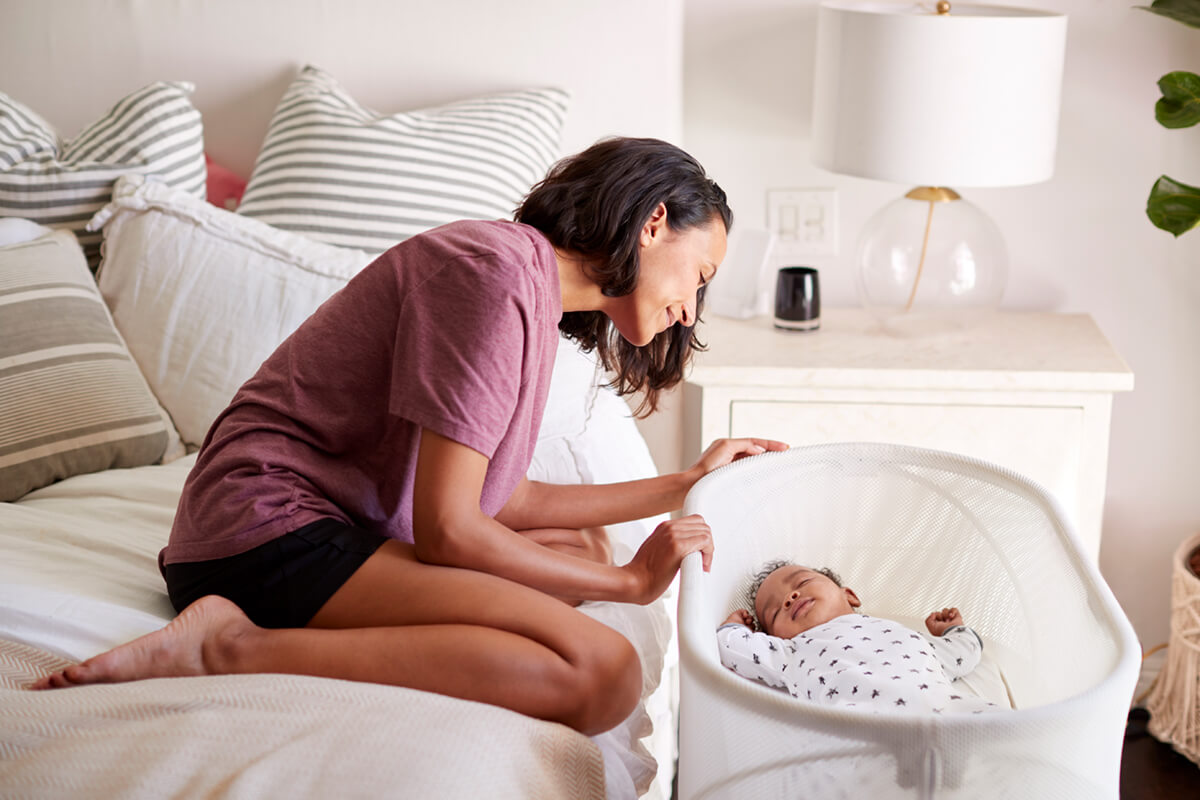
If this is your first baby, you might worry that you are not ready to take care of a newborn. You're not alone. Lots of new parents feel unprepared when it's time to bring their new babies home from the hospital. You can take steps to help yourself get ready for the transition home.
Newborn care
Taking a newborn care class during your pregnancy can prepare you for the real thing. But feeding and diapering a baby doll isn't quite the same. During your hospital stay, make sure to ask the nurses for help with basic baby care. Don't hesitate to ask the nurse to show you how to do something more than once! Remember, practice makes perfect. Before discharge, make sure you — and your partner — are comfortable with these newborn care basics:
- Handling a newborn, including supporting your baby's neck
- Changing your baby's diaper
- Bathing your baby
- Dressing your baby
- Swaddling your baby
- Feeding and burping your baby
- Cleaning the umbilical cord
- Caring for a healing circumcision
- Using a bulb syringe to clear your baby's nasal passages
- Taking a newborn's temperature
- Tips for soothing your baby
Before leaving the hospital, ask about home visits by a nurse or health care worker. Many new parents appreciate somebody checking in with them and their baby a few days after coming home. If you are breastfeeding, ask whether a lactation consultant can come to your home to provide follow-up support, as well as other resources in your community, such as peer support groups.
Many first-time parents also welcome the help of a family member or friend who has "been there." Having a support person stay with you for a few days can give you the confidence to go at it alone in the weeks ahead. Try to arrange this before delivery.
Your baby's first doctor's visit is another good time to ask about any infant care questions you might have. Ask about reasons to call the doctor. Also ask about what vaccines your baby needs and when. Infants and young children need vaccines because the diseases they protect against can strike at an early age and can be very dangerous in childhood. This includes rare diseases and more common ones, such as the flu.
Sudden infant death syndrome (SIDS)
Since 1992, the American Academy of Pediatrics has recommended that infants be placed to sleep on their backs to reduce the risk of sudden infant death syndrome (SIDS), also called crib death. SIDS is the sudden and unexplained death of a baby under 1 year of age. Even though there is no way to know which babies might die of SIDS, there are some things that you can do to make your baby safer:
- Always place your baby on his or her back to sleep, even for naps. This is the safest sleep position for a healthy baby to reduce the risk of SIDS.
- Place your baby on a firm mattress, such as in a safety-approved crib. For more information on crib safety, contact the Consumer Product Safety Commission at 800-638-2772. Research has shown that placing a baby to sleep on soft mattresses, sofas, sofa cushions, waterbeds, sheepskins, or other soft surfaces raises the risk of SIDS.
- Remove soft, fluffy, and loose bedding and stuffed toys from your baby's sleep area. Make sure you keep all pillows, quilts, stuffed toys, and other soft items away from your baby's sleep area.
- Do not use infant sleep positioners. Using a positioner to hold an infant on his or her back or side for sleep is dangerous and not needed.
- Make sure everyone who cares for your baby knows to place your baby on his or her back to sleep and about the dangers of soft bedding. Talk to child care providers, grandparents, babysitters, and all caregivers about SIDS risk. Remember, every sleep time counts.
- Make sure your baby's face and head stay uncovered during sleep. Keep blankets and other coverings away from your baby's mouth and nose. The best way to do this is to dress the baby in sleep clothing so you will not have to use any other covering over the baby. If you do use a blanket or another covering, make sure that the baby's feet are at the bottom of the crib, the blanket is no higher than the baby's chest, and the blanket is tucked in around the bottom of the crib mattress.
- Do not allow smoking around your baby. Don't smoke before or after the birth of your baby and make sure no one smokes around your baby.
- Don't let your baby get too warm during sleep. Keep your baby warm during sleep, but not too warm. Your baby's room should be at a temperature that is comfortable for an adult. Too many layers of clothing or blankets can overheat your baby.
Some mothers worry if the baby rolls over during the night. However, by the time your baby is able to roll over by herself, the risk for SIDS is much lower. During the time of greatest risk, 2 to 4 months of age, most babies are not able to turn over from their backs to their stomachs.
More information on newborn care and safety
Explore other publications and websites
- Bathing an Infant - Bath time can be fun but you need to be very careful with your child around water. This resource provides bathing safety tips and ways to prevent bathing accidents.
- Transitioning Newborns from NICU to Home: Family Information Packet - Bringing home a baby from the NICU can come with special challenges. This toolkit from the Agency for Healthcare Research and Quality includes tips for parents on understanding signs of illness, medication safety, and newborn feeding.
Connect with other organizations

